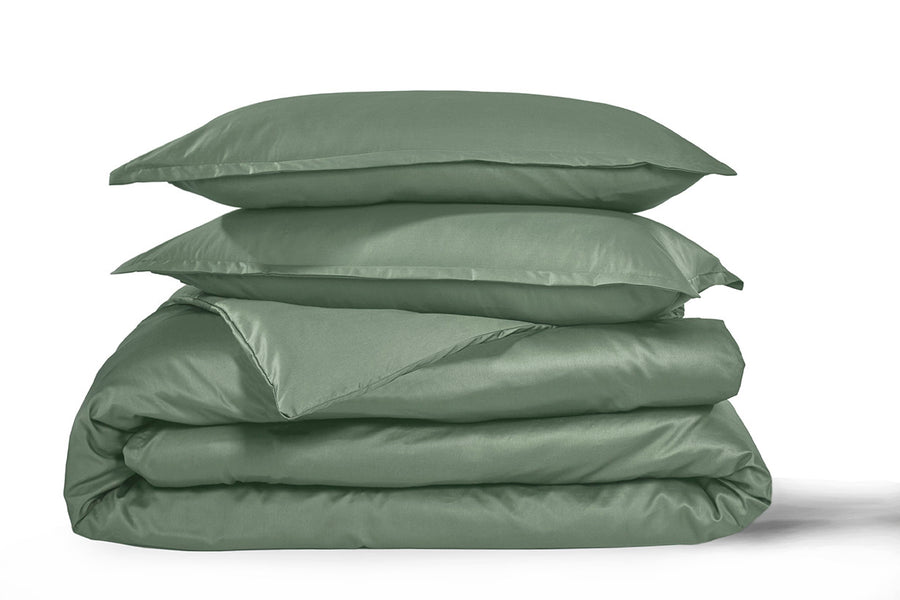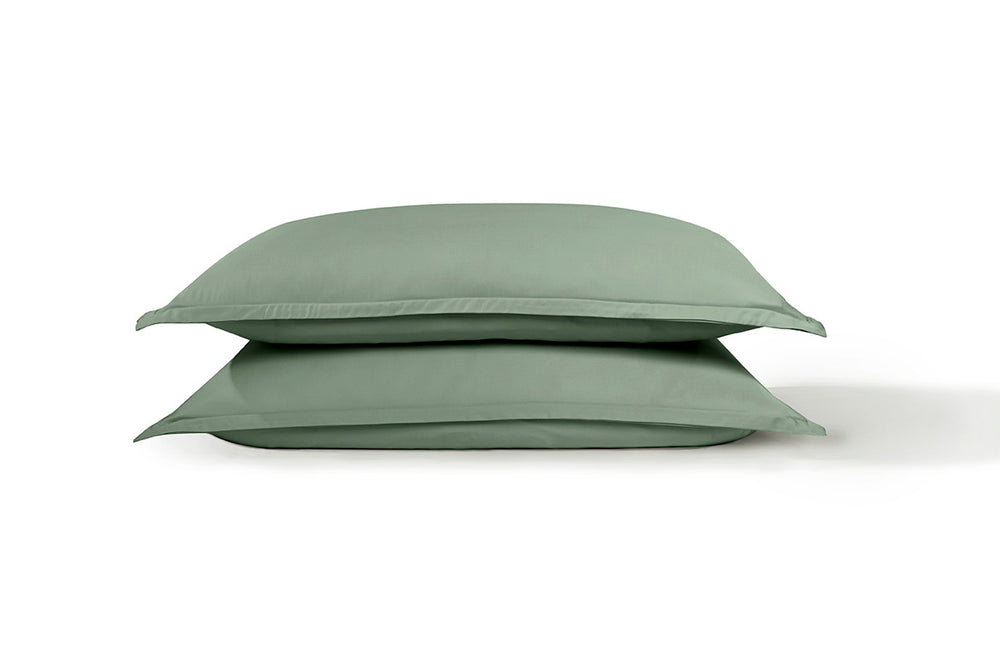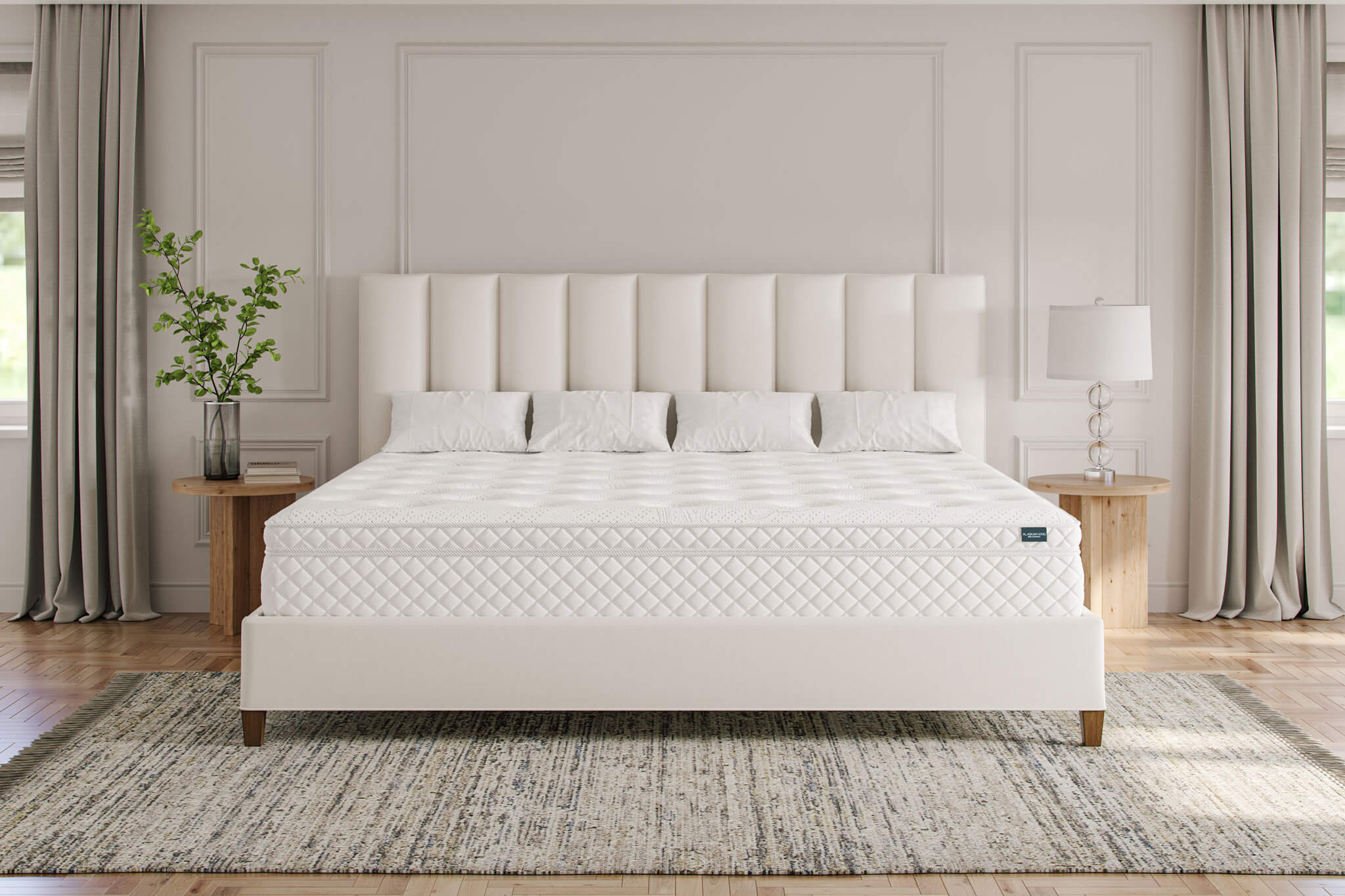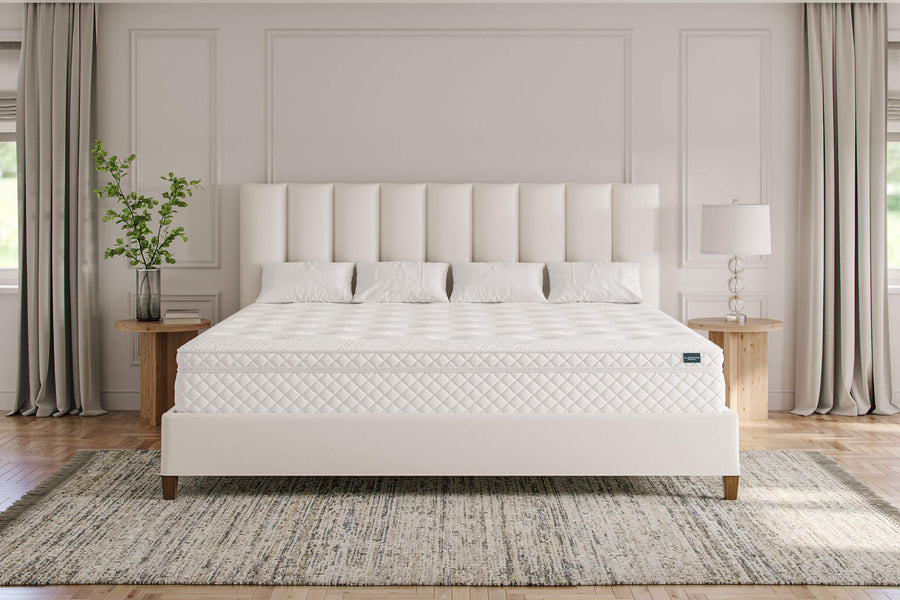Elite Sleep Rituals: What Pro Athletes Know That You Don’t
For professional athletes, performance isn’t just about talent. It’s about optimizing every detail of the day, including what happens after lights out. Whether it’s an extra hour of training, a new post-workout recovery process, or an effective diet regimen, athletes must constantly monitor and improve their daily routines.
Luckily, the bedtime habits of elite athletes are not a secret. That’s why we wanted to pull back the curtain on the sleep rituals of professional athletes and reveal the practices that set them apart. We’ll also explore how a spacious bed (like the Alaskan King) can support deeper, more restorative sleep.
How Sleep Quality Affects Athletic Performance
Research shows that poor sleep impairs athletic performance and increases the risk of sports injuries and illness. Unfortunately, many athletes fail to get the rest they need due to travel, competition schedules, overtraining, academic demands, and other unique challenges.
A 2021 study discovered that quantity and quality of sleep helped improve mood, increase energy levels, boost training quality, and improve stress resilience in athletes. In addition, sleeping for over eight hours each night reduced the risk of injuries and illness.
A Stanford study on college basketball players discovered that longer sleep times translated to faster sprints, better shooting accuracy, increased energy levels, and decreased fatigue. Players also felt better mentally and physically during practices and games.
Another study found that sleeping at least nine hours per night helped tennis players improve their serving accuracy by 17%. They also didn’t feel as sleepy during the day.
On the other hand, sleeping under six hours per night has a negative impact on the endurance, strength, speed, power, and skill of athletes.
So, why is sleep so important for athletic performance?
Sleep is vital for physical recovery because it’s when your body does maintenance. It allows your cells and tissues to repair, your heartbeat to slow down, and your body to recover after physical activity. Your body produces growth hormones during deep stages of sleep, which are essential for muscle growth and repair.
Sleep is also the time when your body produces cytokines, which are essential for fighting off illness and infections, ensuring your immune system’s defenses are strong.
Lastly, sleep is vital for mental performance, emotional regulation, and mood. These factors impact your ability to train and perform, which is another reason why you shouldn’t neglect nightly rest.
The Bedtime Habits of Champions
Although research suggests that athletes need 8.3 hours of sleep to feel rested, they only get 6.7 hours on average. The same study discovered that only 3% of athletes get enough sleep to satisfy their needs. And even though this study didn’t explore the link between sleep quality (and quantity) and athletic success, it’s clear that proper rest plays an important role.
Here’s how some elite athletes approach sleep:
- Lebron James reportedly sleeps up to 12 hours a day. He gets 8-10 hours of sleep per night and takes daily naps. Considering that Lebron has played 22 seasons in the NBA and at such a high level, his sleeping regimen is definitely a big part of his longevity.
- Usain Bolt is known as the fastest man in the world. And although he is now retired, his routine consisted of getting regular 8-10 hours of sleep per night. That was vital for muscle recovery and peak performance on the track.
- Tom Brady is one of the most accomplished NFL quarterbacks and a heavy sleeper. He goes to bed early (8:30 PM) every night to ensure a minimum of nine hours of quality rest. Brady believes that sleep is a key factor in his longevity and success in the NFL.
Serena Williams, Christiano Ronaldo, Simone Biles, Michael Phelps, Roger Federer, and many other elite former and present athletes maintain strict sleeping schedules, prioritizing sufficient rest. So, it’s not far-fetched to say that sleep has significantly influenced their successful careers.
How Alaskan King Beds Can Help Athletes Get Better Sleep
When you're 6'5" and your legs hang off a standard bed, good sleep becomes a daily challenge. That’s why so many taller athletes and active couples turn to oversized mattresses that actually fit their bodies.
Standard Alaskan King is much bigger than a king-size bed. It measures a 108” by 108” sleep surface, which is big enough to accommodate a family of five.
Athletes, with their taller frames, often struggle with standard-sized beds, where limbs dangle over the edge or feel cramped. With an oversize mattress this big, Alaskan King beds ensure enough space for everyone to stretch out and get comfortable.
Alaskan Kings come in seven different sizes, ranging from the Alaskan King Mini (96” x 96”) to the biggest bed on the market – the Alaskan King Biggie (144” x 108”). That allows athletes to select the dimensions that best suit their height and comfort needs.
Alaskan King beds are handcrafted by skilled artisans, using top-quality materials for superior durability. As a result, our one-of-a-kind mattresses provide comfort and support to athletes for a long time.
Even weight distribution and superior pain point relief minimize aches and pains, allowing athletes to enjoy deep, restorative sleep.
Practical Sleep Tips for Aspiring Athletes
According to a meta-analysis published in the Sports Medicine journal, athletes can try several strategies to improve cognitive and physical performance. The most effective way is to extend nighttime sleep or daytime naps.
Findings from the same research suggest significant benefits of extending sleep duration for 46 to 113 minutes in athletes who generally get around seven hours of sleep per night. In addition, napping seems to help supplement insufficient sleep, so experts recommend taking 20-90-minute naps to improve performance outcomes.
Here are some tips on how to get sufficient sleep as an athlete:
- Create a relaxing bedroom environment: Ensure your sleep space is dark, cool, and quiet. Reserve your sleeping area for rest and intimate activities only.
- Avoid caffeine close to bedtime: Caffeine can help improve your workout capacity and intensity, but it can also disrupt sleep if consumed too close to bedtime.
- Don’t overtrain yourself: Schedule workouts earlier in the day to avoid excessively late sessions that may impact sleep quantity and quality.
- Avoid screens an hour before bedtime: The blue light emitted from screens can interfere with your circadian rhythm and make it harder to fall asleep.
- Establish a relaxing nighttime routine: This helps you relax and mentally prepare for rest. Reading, taking a soothing bath, or practicing meditation can work wonders.
- Nap with caution: Although napping can be great, avoid it after 3 PM because it can disrupt your nighttime rest.
- Find a way to manage stress: Stress is a big part of our lives, and you need to learn how to deal with it. Incorporate stress-reduction techniques such as mindfulness and relaxation exercises.
- Don’t force it: If you can’t fall asleep within 20 minutes, get out of bed and engage in a relaxing activity until you feel tired.
Greatness Starts with a Good Night’s Sleep
The success of superstar athletes like Lebron James and Tom Brady can’t be attributed just to their talent and hard work. They also optimize their lifestyle and daily routines, and good sleep seems to be one of the best performance-enhancers.
Quality sleep is vital for physical performance, mental capacity, emotional regulation, mood, and injury prevention. So, sleep isn’t just rest – it’s a way to unlock your full athletic potential.
As an aspiring athlete, you can improve your performance by practicing common sleep hygiene tips to increase the amount of daily sleep.
It’s also important to have a big and comfortable sleeping surface, and there is no bigger bed than the Alaskan King. So, take a look at our Alaskan King mattresses and bed frames and discover the meaning of true comfort.








